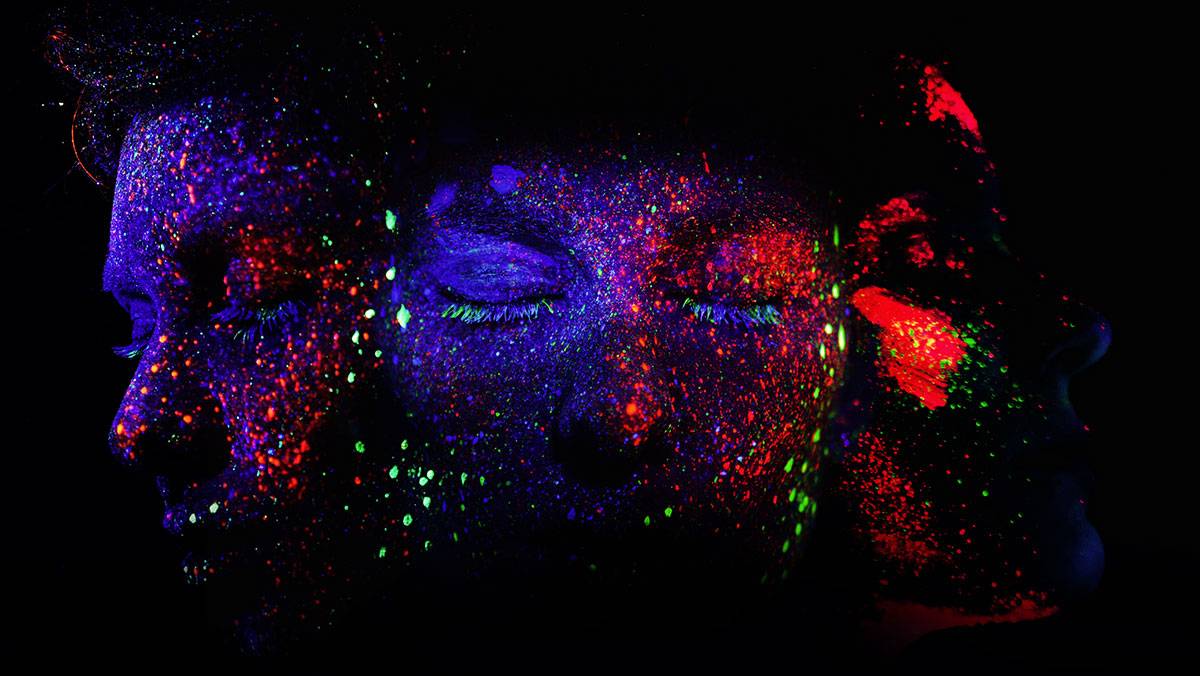The concept of the Id, Ego, and Super-Ego was first introduced by Sigmund Freud as part of his psychoanalytic theory. According to Freud, these three components work together to shape one’s personality and behavior. The Id represents our primitive instincts and desires.
It is governed by the pleasure principle and operates on an unconscious level. It seeks immediate gratification of our needs and wants without any regard for consequences or morality.
The Id is driven by instincts such as hunger, thirst, sexual desire, aggression, and others. On the other hand, the Ego represents our conscious self that mediates between the demands of reality and the desires of the Id.
It operates on a conscious level to balance conflicting demands from both the Id and Super-Ego. The ego follows a reality principle that considers long-term consequences rather than immediate gratification.
The Super-Ego represents our moral compass that is developed through socialization with parents or guardians during childhood. It operates on a conscious level to impose moral standards on us by suppressing or punishing unacceptable behavior according to societal norms.
The Importance Of Understanding These Concepts
Understanding these concepts can help individuals gain insight into their own personality traits and behaviors as well as those of others around them.
By understanding how these three components interact with each other within oneself or others can help in alleviating conflicts arising from different personality traits because it offers a means to understand personality differences among people.
Understanding one’s own unique combination of these three components can also provide important insights into psychological disorders like anxiety disorders or depression where there may be an imbalance between them resulting in unhealthy behavior patterns.
In addition to individual benefits such as self-improvement opportunities and better relationships with others, understanding these concepts has wider societal implications.
For example, Freud believed that a society’s culture and norms can be understood by examining the collective behaviors of its members. Thus, understanding these concepts could help us understand the collective personality traits of a given society.
Brief History And Origin Of The Concept
The idea behind the concept of Id, Ego, and Super-Ego originated from Sigmund Freud’s psychoanalytic theory which he introduced in his book “The Interpretation of Dreams” in 1899. However, it was not until later works like “Beyond the Pleasure Principle” (1920) and “The Ego and the Id” (1923) that Freud elaborated on this theory.
Freud believed that every human being is dominated by unconscious psychological conflicts arising from repressed desires or traumatic experiences from their childhood. He proposed that our behavior is largely determined by unconscious desires in conflict with social expectations imposed by parents and other authority figures.
These conflicts give rise to anxiety which we try to reduce through various defense mechanisms like repression or denial. Freud proposed a three-part model for understanding human personality –
Id: primitive instincts driven by pleasure principle;
Ego: conscious mediator between reality demands and instinctive desires;
Super-Ego: moral compass developed through socialization – which remains an important heuristic for contemporary psychologists as well as psychotherapists today.
The Id
Definition of the Id
The concept of the id was introduced by Sigmund Freud as a part of his psychoanalytic theory. According to Freud, the id is the most primitive and instinctual part of our personality, which operates on an unconscious level and is present from birth. It is entirely focused on fulfilling our most basic biological needs and urges, such as hunger, thirst, sex drive, and aggression.
Characteristics of the Id
The id has several defining characteristics that differentiate it from other parts of our personality. Firstly, it is entirely unconcerned with reality and logic; instead, it operates on what Freud called the “pleasure principle.” This means that the id seeks immediate gratification for its desires without regard for long-term consequences or social norms.
Secondly, emotions are an essential aspect of the id’s functioning. Infants express their needs through crying or screaming when hungry or uncomfortable – these are pure emotional expressions that are not governed by reason.
Because the id operates primarily in our unconscious mind, we are not explicitly aware of its workings. This lack of conscious control over this part of our personality can make us feel overwhelmed by strong impulses and desires that we cannot explain or understand.
Primitive Instincts
The primitive instincts that drive the id’s actions include what Freud called eros (the life instinct) and thanatos (the death instinct). Eros drives us towards pleasure-seeking behaviors such as eating when hungry or having sex when aroused. Thanatos represents aggressive impulses like anger and violence towards ourselves or others.
These instincts develop early in life but continue to influence us throughout adulthood. They can manifest themselves in a variety of ways – sometimes positively (e.g., creative expression), while other times negatively (e.g., addiction).
Pleasure Principle
The pleasure principle is the driving force behind the id’s actions. It dictates that we seek pleasure and avoid pain. The id seeks to gratify our desires immediately, without thought for consequences or other people’s feelings.
For example, a baby cries when hungry; it does not consider if its parent is busy or sleeping. This drive for immediate gratification can lead to impulsive behavior and a lack of self-control, as the id does not take into account long-term goals or ethical considerations.
Examples of how the Id influences behavior
The id’s influence on behavior can be observed in various ways. One example is eating junk food despite knowing it is unhealthy – because it provides instant gratification through taste and satisfies hunger quickly.
Another example could be losing your temper when frustrated or angry – acting impulsively without considering the impact on others. In both cases, the id has won out over other parts of our personality like reason (the ego) and social norms (the super-ego).
Overall, understanding the id is essential in unraveling human behavior and motivation. It can help us understand why individuals make certain choices while also shedding light on psychological disorders such as addiction or personality disorders characterized by impulsivity and emotional instability.
The Ego
Definition of the Ego
The Ego is the second component of Sigmund Freud’s theory of human personality, which he introduced in his seminal work “The Interpretation of Dreams”. According to Freud, the Ego is responsible for mediating between the primitive impulses of the Id and the moral restrictions of the Super-Ego, which are often in conflict with each other. The Ego acts as a mediator by utilizing its own reality principle to find a balance between these two components.
Characteristics of the Ego
One key characteristic of the Ego is that it operates within conscious awareness. Unlike the Id, which operates on an unconscious level, and Super-Ego which can operate both consciously and unconsciously; The ego enables us to interact with our external environment using rational thought processes. It helps us understand what is real and what is not real- hence its name as ‘reality principle’.
Another important characteristic of the Ego is that it serves as a mediator or negotiator between our desires (as expressed by impulses coming from our Id) and social norms (as represented by our Super-Egos). This balancing act sometimes results in unresolvable conflicts within ourselves.
Reality Principle
The reality principle refers to our ability to understand and interact with reality in a way that satisfies both inner desires and demands placed upon us by external factors. The ego utilizes this principle when deciding how to satisfy impulsive urges (from Id) while still satisfying social norms (Super-Egos). Therefore, Instead Of Immediately Seeking Pleasure Without Any Consideration Of Real-World Consequences As We See In The Id; we evaluate options for satisfying those desires while also considering societal expectations.
Conscious Mind: Mediator Between Id And Super-Ego
As mentioned earlier, the Ego operates within conscious awareness; It helps us understand what is real and what is not. The ego does this by mediating between the primitive impulses of the Id and moral restrictions of the Super-Ego. It serves as a rational voice that tries to balance emotional and moral needs against practical considerations.
Examples of how the Ego balances conflicting desires
An example of how the ego balances conflicting desires can be seen in an individual who wants both to indulge in unhealthy eating habits but also wants to maintain a healthy lifestyle. The ego mediates these two impulses by finding ways to satisfy cravings without compromising overall health goals, such as indulging in small portions or healthier substitutes.
Another example could be someone who seeks immediate gratification through impulsive shopping but also aims to save money for their future.
The Ego would find a way to balance these two competing desires, perhaps by creating a budget that allows for occasional splurges while still allocating funds towards savings goals. the Ego plays a vital role as it allows us to navigate our internal and external worlds effectively.
Through its reality principle and mediation skills, we are able to balance our often conflicting needs and desires successfully. Failure in maintaining this balance can lead to psychological issues such as anxiety, compulsive behaviors or low self-esteem- highlighting how important it is for all three components (Id, Ego & Super-Ego) to work together effectively.
The Super-Ego
The super-ego is the third component of the tripartite personality, alongside the id and ego. It represents our internalized moral standards and values, as well as our sense of right and wrong.
The super-ego is developed during early childhood through socialization and parental guidance, particularly through discipline, rewards, and punishments. Sigmund Freud believed that the super-ego was closely connected to the conscious mind.
Definition Of The Super-Ego
The super-ego is derived from a child’s experiences with parents or other authority figures who provide rewards for good behavior and punishments for bad behavior. Through this conditioning process, children internalize these rules to form the super-ego which becomes an inner voice or conscience that guides their decision-making throughout life.
Characteristics Of The Super-Ego
The super-ego operates on what Freud called the morality principle – it enforces a strict code of morality based on cultural values and societal norms. This means that it often places moral concerns above individual desires or needs; thus, it sometimes conflicts with both the id’s primitive impulses and ego’s rational considerations.
Another key characteristic of the super-ego involves its relationship to guilt. When individuals violate their moral standards (as dictated by their super-ego), they may experience feelings of guilt or shame as a form of self-punishment for breaking these rules.
Morality Principle
The morality principle refers to how individuals learn societal norms about what is right versus wrong, good versus bad, acceptable versus unacceptable through socialization processes.
As individuals grow up in different cultures with different expectations around behaviour determining what are acceptable behaviours can vary enormously depending on where someone grows up in terms of both geographical location but also socially within society itself.
When society expects people to behave in certain ways (e.g., respecting others, not stealing, and so on), individuals internalize these expectations to form the super-ego. As such, the morality principle acts to provide a set of standards or ideals that guide individuals’ behaviour.
Conscience Mind
Freud believed that the super-ego operates on what he called the conscience mind. This means that it is closely connected to our awareness of what is right and wrong. When an individual behaves in ways that violate their moral standards (as determined by their super-ego), they may experience feelings of guilt or shame as a form of self-punishment for breaking these rules.
The conscience mind also serves as a kind of self-monitoring mechanism. It constantly evaluates an individual’s thoughts, emotions, and behaviours against societal norms to determine whether they are consistent with moral values.
Developed Through Socialization And Parental Guidance
As mentioned earlier, the super-ego is developed during early childhood through socialization and parental guidance. Children learn how to behave according to societal norms by observing and modeling adult behaviours around them, particularly from parents or other authority figures who reinforce rules through rewards and punishments.
Through this conditioning process, children internalize these rules which become part of their superego which guides their decision-making throughout life.
Examples Of How The Super-Ego Influences Behavior
The super-ego can influence behavior in various ways depending on an individual’s personality traits, upbringing experiences, cultural values and societal norms they grew up within. For example: 1) An individual who has an overactive superego may experience excessive guilt or anxiety when confronted with difficult decisions
2) An individual who has a weak superego may exhibit impulsive behavior that disregards social norms
3) An individual whose superego adheres too strictly to societal expectations may experience difficulty handling ethical dilemmas where right versus wrong is not clear-cut.
4) An individual whose superego internalizes a complex set of cultural expectations may experience difficulty reconciling their own desires with societal norms. The super-ego reflects an individual’s internalized sense of morality and provides a set of standards or ideals that guide their behavior.
It develops through socialization and parental guidance during early childhood, and it constantly evaluates an individual’s thoughts, emotions, and behaviours against society’s moral code. The super-ego can either facilitate or inhibit behaviour depending on how it interacts with the other two components of personality.
The Interplay Between The Three Components
The three components of the psyche, namely the Id, Ego, and Super-Ego, are constantly interacting with one another to shape our personality and behavior. The Ego sits at the intersection of these three components and acts as a mediator between them. Its role is to balance the impulses of the Id with the moral constraints of the Super-Ego to achieve a sense of equilibrium.
For example, suppose you are driving down a deserted road on a hot summer day when you suddenly spot an ice cream truck parked on the side of the road. Your Id will be screaming for immediate gratification in terms of getting ice cream.
However, your Super-Ego may come into play by reminding you that it’s not healthy to eat too much ice cream, or that buying from a random truck might not be safe. Your Ego will then weigh both factors before deciding whether or not to indulge in some ice cream.
How They Work Together To Shape Personality And Behavior
The human psyche is like a complex machine with multiple moving parts that work together in harmony to produce personality and behavior. A well-balanced person has an efficient interplay between their Id, Ego, and Super-Ego leading them towards healthy decision-making habits and good relationships.
A person who has a dominant Id without any reasonable guidance from their Ego or Super-Ego can exhibit impulsive behavior that can be harmful to themselves or others around them.
Such people might find it difficult controlling their impulses which can lead them towards dangerous addictions such as substance abuse. On the other hand, if an individual has an overactive Super-Ego without any balance from their Id or Ego then they may struggle with being too hard on themselves or others around them causing strained relationships which can lead them towards anxiety disorders.
How Imbalance Can Lead To Psychological Disorders
Imbalance between the three components of the psyche can result in psychological disorders. Such disorders can be caused by various circumstances such as trauma, abuse, loss of a loved one, or any stressful event that disrupts the harmony between these three components.
For instance, if an individual’s Super-Ego is too dominant and they are unable to control their impulses from their Id this individual may develop anxiety-related disorders such as Obsessive-Compulsive Disorder (OCD).
In contrast, an individual who lacks a well-developed Super-Ego may experience psychopathic tendencies that cause harm to themselves and others around them.
How Psychoanalysis Can Help Restore Balance
Psychoanalysis is a method used by psychologists to help individuals understand their behavior and thought processes. Through psychoanalysis, individuals can understand the root cause of their problems and learn healthier ways to manage them.
For example, if an individual’s Ego is unable to balance the conflicting desires from both their Id and Super-Ego effectively resulting in anxiety attacks then psychoanalysis can help this individual identify triggers that lead to these attacks.
The therapist can then guide them towards developing coping mechanisms that will enable them to restore balance between all three components for optimal mental health. Understanding how the Id, Ego and Super-Ego interplay with each other is essential for maintaining good mental health.
An imbalance in any of these components can lead to harmful behaviors or psychological disorders. However, through psychoanalytic techniques such as identifying triggers and developing healthy coping mechanisms individuals can learn how to restore equilibrium between these three important parts of our psyche.
Conclusion
After exploring and analyzing the Id, Ego, and Super-Ego, it is apparent that these concepts have significant implications in modern times. Understanding these psychological constructs can help individuals gain insight into their own behavior and personality. The development of these components begins in childhood and continues throughout life, shaping our choices and actions.
Significance of Understanding These Concepts in Modern Times
In modern times where mental health awareness is becoming more widespread, understanding these concepts has become increasingly important. By recognizing the influence of the Id on our behavior, we can learn to manage our impulses more effectively. By strengthening the Ego’s ability to balance conflicting desires, we can maintain a healthier mental state.
Moreover, understanding how socialization shapes the Super-Ego can help individuals better comprehend their moral values and beliefs. This knowledge can also inform public policies aimed at promoting a healthier society.
Future Implications And Research Directions
As research into psychoanalytic theory continues to evolve, there are several implications for future study. One area of interest may be examining how cultural differences affect the development of these psychological constructs.
Additionally, research could explore how trauma or adverse childhood experiences impact the formation of these components and lead to psychological disorders later in life.
Ultimately, continued research into this area could provide valuable insights into the human psyche and how we develop as individuals. By applying this knowledge, we can promote healthier and more fulfilling lives for ourselves and others.




























































